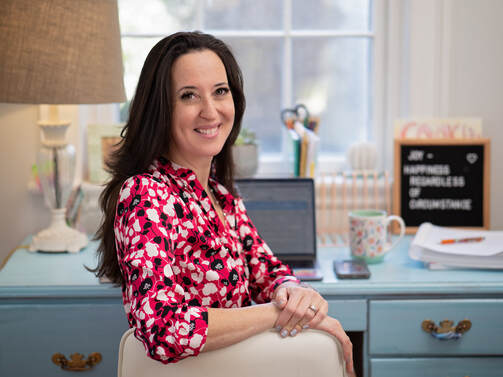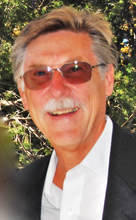 By Alex Evans, PharmD, MBA AI writers, powered by artificial intelligence and having access to the whole of the internet, made big headlines earlier this year with the release of ChatGPT. But while ChatGPT made AI famous, AI writers have actually been around for a while. Jasper, a popular AI writer, was founded in February 2021, while WriteSonic, my personal favorite AI writer, was founded earlier than that, in October 2020. The problem, though, was that even last year AI writing technology was not very good. I remember trying out an AI writer in the fall of 2022 and the writing quality was so poor it wasn’t usable. That quickly changed, and the latest GPT4 technology is essentially undetectable from a human writer. Now they are capable of passing exams from law and business school and, yes, even medical schools. One study even concluded that ChatGPT beat out doctors in answering patient questions. They have become so useful that many professionals now can’t imagine not having them. There are myriad ways you can use an AI writer, from writing real estate descriptions to blog articles. I have used them quite a bit for my medical writing business as well as for my travel site. I’ve even made them spit out a nearly complete continuing education activity. In this post, though, I want to give you a few ideas for using AI writers to help you find a job - whether you are looking for another clinical job, an industry job, a medical writing job, or something else. Tip #1: Find companies hiring in your field AI writers are great at helping you find companies hiring for the type of job you want. While most AI writers do not have the most up-to-date access to the internet, and so at this time cannot find open jobs, identifying potential employers is a big step forward in the job search. Example Let’s say you’re an MD or DO looking to get a side gig in medical writing. One very common type of work for physician medical writers is producing continuing education. Knowing this, we can ask an AI writer to help us find companies that create continuing education for physicians. While you’re at it, you might as well ask for companies doing CE for PAs too, to broaden your field a bit. It’s a good idea to ask it to exclude organizations that are unlikely to hire freelance writers. In this case, I asked it to exclude universities and hospitals. Here is what a prompt for that may look like: “Name 15 companies that create continuing medical education for physicians and physician assistants. Do not include universities or hospitals.” Here’s the output I got from WriteSonic. As you can see, there are lots of great ideas for companies that may hire you to produce continuing education:
I demonstrate this strategy in my course AI in Medical Writing, but you can check it out as a sneak peek lecture on my YouTube channel. Tip #2: Get help with your cover letter If you’re applying for a full-time role you’ll likely need a cover letter. You may need a cover letter for some freelance opportunities as well. Here again, AI writers can save you a lot of time. You’ll need to tell the writer a little bit about your background, but it can fill in the fluff. Example Here’s an example of a prompt I would use for this: Write me a cover letter for a job entitled “Medical Writer.” I have a BS in Biology, a Doctor of Pharmacy (PharmD), and an MBA. Please describe some of my accomplishments:
Here’s what I get when I put it in ChatSonic: Dear Hiring Manager, I am writing to express my interest in the Medical Writer position advertised on your website. With a Bachelor’s degree in Biology, a Doctor of Pharmacy (PharmD), an MBA, and numerous professional writing experiences under my belt, I am confident that I have the skills and knowledge necessary to excel in this role. Throughout my career, I have honed my writing skills by creating informative, accurate, and engaging content for a number of reputable healthcare platforms. Recently, I have written consumer health articles for GoodRx.com, where I translated complex medical concepts into understandable language for the average reader. I took great pride in making healthcare information accessible and comprehensible to the public, thereby empowering individuals to make informed decisions about their health. In addition to consumer articles, I have written numerous professional pieces for various platforms such as PharmacyTimes.com, Drug Topics, and Patient Care Online. These articles required a deep understanding of various healthcare topics, along with the ability to effectively communicate this information to healthcare professionals. My ability to write for both professional and lay audiences showcases my versatility as a writer. Moreover, my work has been published in the International Journal of Pharmaceutical Compounding. My peer-reviewed publications required rigorous research, meticulous attention to detail, and precise writing skills, all of which I am eager to bring to your team. With my extensive educational background, including a PharmD and MBA, I possess a deep understanding of medical, pharmaceutical, and business concepts. This unique blend of knowledge allows me to approach medical writing from various angles and produce well-rounded content. I am excited about the possibility of joining your team and using my skills and experiences to create top-quality medical content that will inform and educate your audience. Thank you for considering my application. I look forward to the opportunity to discuss my qualifications in more detail. Sincerely, [Your Name] Try copying and pasting that prompt into an AI writer and see what you get. Then play around with it and see if you can adjust the prompt to fit your background, experience, and the job you are applying to. Tip #3: Pitch an editor For many freelance writing opportunities, you’ll first need to pitch your article idea to an editor. WriteSonic has a really cool tool in their dashboard called the Cold Emails tool. You can use it to get a pretty good start on an email. Another option is to use a Chat Writer. Tell it what you are wanting to write about and who you are pitching it to. Example I plugged this simple prompt into Chat Sonic: “write a pitch to an editor for an article on pharmacotherapy for heart failure. I am hoping to get this article published in the American Academy of Family Practice (AAFP). I am a cardiologist practicing in San Francisco and teach cardiology residents.” It gave me this - as you can see, it did an incredible job getting me started on a pitch: Subject: Innovative Pharmacotherapy for Heart Failure: A Comprehensive Guide for Family Practitioners Dear Editor, I hope this message finds you well. I am a practicing cardiologist based in San Francisco, with years of experience teaching cardiology residents. I am eager to share my insights on an important topic that will benefit the AAFP's readership: pharmacotherapy for heart failure. Heart failure is a complex and prevalent condition that affects millions of individuals each year. While it is often managed by cardiologists, family practitioners are frequently the first point of contact for patients, and they play a critical role in early detection and ongoing management. My proposed article aims to provide a comprehensive, up-to-date, and practical guide on the pharmacotherapy options for heart failure. It will be tailored to the needs of family practitioners, focusing on the nuances of various therapies, potential side effects, drug interactions, and considerations for patient-centered care. The piece will also highlight the latest advancements in pharmacotherapy, and how they can be incorporated into everyday practice. This is a topic I am deeply passionate about, and it has been the focus of my teachings with cardiology residents. As a specialist in the field, I believe my unique perspective and practical knowledge will resonate with AAFP's audience, and equip them with the tools necessary to provide optimal care for their patients with heart failure. I would be delighted to discuss this proposal further and look forward to the possibility of contributing to AAFP's esteemed publication. Best Regards, [Your Name] The Bottom Line AI writers have transformed not only the world of writing, but also how professionals in all industries communicate and work. You can use these tools to save you time and to help you craft the perfect message that helps you land that next role. About the author: Alex is a pharmacist and medical writer in Jacksonville, FL. He is also an Assistant Dive Instructor and lived in Hawaii for five years, barely getting dry before his next shift at the pharmacy. Course: https://membership.pharmacists.org/ai-medical-writing-course/ Ebook: https://www.pharmcompliance.com/ai-medical-writing
0 Comments
As a physician, your reputation matters. Traditionally, patients have depended on word of mouth when it comes to which doctor to go to. Everyone would tell family and friends which doctors they liked or didn't like, while referring physicians would refer to the specialists whom they trusted as good doctors to take care of their patients. But things are changing. Stringent physician networks limit which doctors patients can see, and patients often look to online rating sites to decide which physicians are best. The truth is that the vast majority of people don't bother to rate their physician at all- so there are very few ratings out there. But, terrible ratings and comments from irate patients can be a real cause of distress for doctors. Why people post unfair negative comments
Many doctors want to know what to do about unfair, potentially damaging comments. Unfair negative comments can happen when:
And, doctors are often frustrated because the negative comments are not usually directly related to the particular dispute, but are often falsified. Nevertheless, they are out there for everyone to see. No one is perfect, and unfortunately, people are more likely to post bad comments when they are unhappy with the outcome than they are to post good comments when things turn out well. Many people achieve a sense of satisfaction and feel more 'in control' of life after posting a negative review. This tips the factual comments in favor of the negative. In fact, some doctors try to redirect practice away from medical conditions that are commonly associated with patients who are more likely to be "toxic." This can be challenging for patients who have these stigmatized medical conditions. What can you do? Because of patient privacy concerns, physicians, unlike other business owners, cannot rebut a complaint by explaining in a comment on the website, 'this patient asked for ...' But there are some things you can do. * Contact administrators of physician rating sites, as negative ratings can have a harmful impact on referrals and on the livelihood of good physicians who are treated unfairly online. *Some doctors have tried litigation, which is a costly and lengthy process. But, as with all legal issues, precedents may change things over time. *Some physician rating sites are starting to charge a fee for services such as 'enhanced search engine optimization' and 'high rating profiles.' This is still a very new concept and it may turn out to benefit doctors who jump on the idea early, or it may not make a difference. *One way to control your professional online presence is by presenting yourself online as yourself. When old-fashioned word of mouth was the way things were done, a doctor's personality could shine through. Now, doctors can show who they really are through writing patient-centered articles that demonstrate to patients how a doctor may interact in person. Consider writing an article for nonclinicaldoctors.com or for another website as a way to control your own online reputation.  By Marie Hasty Think about your favorite physician leader - chances are they’ve got a book to their name. Getting published is an unspoken strategy for building an expert personal brand. A book can open the door for speaking engagements, consulting opportunities, and waiting lists of referrals.
As a nonclinical physician, you’ve collected a wealth of knowledge and experience extending past clinical practice. A book helps your insights and ideas reach more people and elevates your brand. But if you’re just starting the writing process, or you're bogged down in a manuscript, what are your options for getting help? Should you work with a book coach, hire a ghostwriter, or go it alone? I’m a ghostwriter for clinical entrepreneurs and physician leaders. Physicians often come to me unsure about what process is the best fit for them. So let’s talk about how to know if you should write your book yourself, hire a ghostwriter, or work with a book coach. Writing Your Own Book Writing your own book can be deeply rewarding. If you love writing, and you want to get better at it, I’d recommend trying your hand at writing your own book. You’ll get complete control over every word, and there’s nothing quite like reading your very own words on the printed page. On the other hand, writing your own book is time-consuming, and you’ll need to commit hours every week to getting a manuscript ready. It can be a serious juggling act to balance writing alongside your professional and personal responsibilities. Writer’s block and self-doubt can also make the writing process more turbulent, and staying motivated is challenging for most first-time authors. If you're thinking about writing a book yourself, you’ll want to think about your answers to these questions:
In thinking about your answers, I hope you’ve found some clarity on whether writing your own book aligns with your goals and time constraints. And there’s flexibility in this process; you might try your hand at writing, find you don’t enjoy it, and end up working with a ghostwriter. There’s no shame in consulting the experts. This brings me to when and why a ghostwriter might be a better fit than writing your own book. Let’s talk about who should consider this option. Hiring a Ghostwriter If you want the benefits of a published book without going through the (sometimes painful) writing process yourself, you’ll want to work with a ghostwriter. A ghostwriter brings a wealth of writing expertise and storytelling finesse to the table, ensuring that your ideas are articulated with clarity, precision, and impact. And a great ghostwriter doesn’t just emulate your voice — they elevate it. When physicians come to me to write their book, it’s typically because they don’t enjoy writing, they’re constrained by time and other commitments, and they want professional advisement on the publishing process. But some authors don’t like feeling so removed from the content of their book. You still get final say on your book with a ghostwriter, but you don’t get the control that comes from writing every word. If you’re considering working with a ghostwriter, answer these questions:
A ghostwriter can be a great resource for physicians who want to invest in their career growth with a book, yet they don’t have the time to write themselves. And business books require strategy to get to where you want to go. A great ghostwriter will consult with you on your audience, your key narratives, and the structure of your book to make it marketable. Psst. . . Curious about how to find the right collaborator? Check out this article on picking a ghostwriter. But there’s a third option that falls between writing your own book and hiring a ghostwriter: book coaches. A book coach is someone who helps you make progress on your manuscript without writing it for you. Let’s get into what you can expect when working with a book coach, and why you might choose this over the other two options. Working with a Book Coach A book coach is an invaluable ally for physician leaders who want support and guidance while still writing their book themselves. Book coaches provide expert mentorship, helping you clarify your book's purpose, structure, and target audience. With guidance from a great book coach, you can strategize and write a professional book yourself. What’s more, a book coach is an accountability partner throughout the writing process. They can help you set a timeline, and be sure you stick to it. And many book coaches work on a monthly basis, which helps incentivize you to get your book done faster. Book coaches are an excellent option if you. . .
A book coach can help you articulate your ideas yourself while sticking to a timeline. And with a great book coach, you’ll learn lessons to apply on this book, the next one, and the next. To learn more about book marketing for nonclinical physicians, see this article. Check out this quick info comparing writing your own book with ghostwriting and book coaching Writing Your Own Book Cost: Nothing Timeline: Up to you Major benefits:
Working With a Ghostwriter Cost: $25,000+ per manuscript Timeline: 4-6 months Major benefits:
Cost: $1,000-$2,500 + per month Timeline: 6 months-1 year Major benefits:
Which Option is Right for You? Whether you choose to write yourself, work with a book coach, or hire a ghostwriter, getting published is a big achievement. A professionally written and published book can pay dividends in your career, and be a lasting legacy of your expertise. Books have helped many physicians become household names. Whether you want to get more speaking gigs, consulting contracts, or just expand your personal brand, and book can help you achieve your goals. If you’re curious about the writing process, I encourage you to try writing yourself. You might get into the process and realize how much you love putting your stories to the page. Ghostwriters and book coaches are always there to help if you need guidance (or someone else to take the wheel). If you’d like more specific consultant on what route is right for you, I’d love to help you gain clarity. My website is linked below, feel free to reach out to me with your questions. About the Author: Marie Hasty is a concierge ghostwriter and content marketer for clinician leaders. A registered nurse, she loves helping advance careers for physicians who are advancing health and medicine. When she’s not writing books and articles, she’s oil painting or hiking. Learn more about her work on her website.  By Marie Hasty Have you ever thought about publishing a book? As a physician, you have a unique perspective on the human experience. And putting “published author” behind your name sounds pretty nice. But publishing a book has more tangible benefits than you might think. If you’ve got high-reaching goals for your career, a book could help you get there. For physicians who leverage their medical background in business, investing, or leadership, establishing authority is crucial. A book can set you apart from your peers and rocket your career forward, with the right strategy. I’m a concierge ghostwriter for physician entrepreneurs and clinical leaders, and the best part of my job is seeing my clients succeed because of the books we put together. These projects change lives. So let’s dive into the top 5 benefits of publishing for nonclinical physicians. 5 Benefits of Book Publishing for Nonclinical Physicians The books I write for clients are career investments with specific goals. These are the top reasons my clients choose to get published: 1. Establishing Thought Leadership Lots of docs have social media accounts, but not many have published a book. Publishing is a powerful way to establish thought leadership in your industry. By sharing your expertise, unique perspectives, and innovative ideas, you position yourself as a trusted authority. Social posts and blog articles can get lost in the chaos of the internet, but a book solidifies your place in the conversation. Look at the thought leaders in your specialty; do they have a book to their name? I bet many of them do. 2. Expanding Patient Reach and Impact If you’re wanting to have more impact on patients without putting in clinical hours, a book can help you do that. Your book can serve as a lasting resource that patients can refer to for expert support and guidance. You might address common misconceptions, debunk health myths, and foster a deeper understanding of complex medical topics. And by sharing successful case studies or offering practical strategies, you can encourage patients to overcome challenges and adopt healthier habits. 3.Opening Doors to Speaking Engagements and Consultation Opportunities If you’ve been looking for a way to get your foot in the door for speaking gigs and consulting contracts, a book can help. Many event organizers look for published authors when they’re seeking out speakers. Having a book table at the back of your next speaking engagement is a great way to market your business. And there’s no better way to promote your consulting work than to send high-ticket clients a copy of your book. 4. Building a Strong Personal Brand Do you ever wonder how those doctors on talk shows get those opportunities? They’ve invested in their personal brands. They’ve established themselves with media representatives to become the go-to person in their niche. Your book can do the same for you. Building a personal brand goes beyond clinical practice, giving you a platform to advocate for the causes you care about. Publishing a book is a giant leap forward in building your platform. 5. Leaving a Legacy on Your Industry If you’re wanting to shape the future of healthcare and medicine, you should plan to publish a book. By sharing your experiences and insights in a lasting way, your book leaves your mark on the industry. You can drive progress and inspire positive change. You might influence industry conversations and guide leaders. Government decision-makers often look to expert-written books to guide their decisions, and you could be one of those experts. Using a Ghostwriter All these benefits sound great. Maybe you’ve seen other medical leaders publish their own books and reap the rewards. But you’re busy, and you probably don’t have the time to write your book yourself. Enter: ghostwriters. Some experts estimate that up to 70% of the nonfiction section in every bookstore is ghostwritten. But we ghostwriters can be an elusive bunch. How should you find the right ghostwriter for your book project? And what’s the process for vetting them before you work together? Let’s talk about it. How Can I Find the Right Ghostwriter? If I was a clinician looking for a ghostwriter, I’d check out these resources: Personal Referrals Have any of your friends or peers written a book or had one ghostwritten? They’d be the first people I’d ask when you’re ready to start your own book project. If you don’t know anyone that has published a book, you might check out these avenues for referral recommendations:
Ghostwriting is a personal process, and referrals are the #1 way that writers get projects. But you can also find great ghostwriters on social media. Linkedin is the second way that clients tend to find me, and while there still aren’t many ghostwriters on the platform, it’s a great way to compare writers. Search ‘ghostwriter’ and check out the profiles that come up. Ghostwriting Agencies Groups like Reedsy and Gotham Ghostwriters are another way to get placed with a ghostwriter for your project. Both of these groups have thousands of ghostwriters in their network, so you’ve got a good chance of finding the right fit. The downside is that there can be a lack of continuity when you work with an agency, so make sure you read your contract thoroughly before getting started. Speaking of contracts, let’s go over a few tips for partnering with the right ghostwriter. Tips for Choosing Your Ghostwriter:
And there you have it. Following this guide can help you find the right ghostwriter for your book. When you partner with the right ghostwriter, you speed up the book-writing process so you can get the benefits of publishing faster. Plus, you won’t have to spend your precious time sweating over drafts. If you’d like to learn more about my ghostwriting process, or you have questions about how to get published, I’m happy to help. Check out my website below to learn more. About the Author: Marie Hasty is a concierge ghostwriter and content marketer for clinician leaders. A registered nurse, she loves helping advance careers for physicians who are advancing health and medicine. When she’s not writing books and articles, she’s oil painting or hiking. Learn more about her work on her website.  By Amruti Borad DO It was one month prior to the first COVID19 Omicron Surge when I thought to myself: “If I have to write one more note or sign one more order, I think I might leave medicine.” This thought frightened, disappointed, and angered me. Why did I spend the last umpteen years striving to and dreaming of becoming a Family Physician, only to end up feeling this way? How could medicine let me down? My relationship with medicine turned from finding the love of my life to a tragic sudden break up (If you haven’t heard the Chris Stapleton song, “Cold,” take a listen. This is exactly how I was feeling). I felt lost. I had already spent hundreds of hours reading about burnout, listening to every podcast under the sun, hoping to find my way back to the excitement I felt on my first day as an Attending Physician. And then I came across an article that discussed a few unique ways of addressing this epidemic is via coaching, mentorship, and peer support programs. Coaching stood out to me as I had already been considering it for it for a few years and by chance I met a physician coach within my own department. It was time to invest in myself, and I did. Not only did coaching help me navigate and grow as a novice Clinic Medical Director and a Department Wellness Director, it brought back the joy of clinical medicine, consistently reinforced my “Why” in both my professional and personal life, and drew me into a world of endless possibility. It also allowed me to pay it forward by bringing coaching (both formal and informal) to my colleagues in need and to our department. Here are my takeaways from my coaching journey:
About the author: Amruti Borad is a board-certified Osteopathic Family Medicine Physician. She completed her residency at UCLA, continued a career at UCLA in academic medicine for a few years, followed by joining a non-academic patient-centered clinic at UC San Diego Health. During this time, she was a volunteer preceptor for one of the UC San Diego Health Free Clinics, Department COVID19 Lead Physician, Clinic Medical Director, and Department Wellness Director.
She had the opportunity to achieve her Lean Six Sigma Blackbelt and graduated from the Health Leadership Academy at UC San Diego Health. This brought her great purpose – the ability to be at the forefront of Physician and Staff burnout prevention and treatment and to make positive changes for her patients on a larger scale within the healthcare system. She recently began working at a UC San Diego Health Concierge Medicine practice, which she feels allows her more time to build meaningful relationships with her patients, resulting better in health outcomes, and achieving a true work-life balance. She credits her physician coach with reinvigorating her joy in medicine, and she wants to pay it forward. She is currently in coach training at The Life Coach School, with a goal to work with physicians. In her free time, she enjoys playing the piano, songwriting, meditating, reading non-fiction, having great meals and conversation with close friends, playing with her loving golden retriever and golden doodle, and attending concerts and traveling throughout the United States with her husband.  By Jenny Han Hospitals are a crucial part of society. This is especially the case for rural areas. However, there are currently 1,844 rural hospitals in the United States, with 120 of them closing. Now, there is a need for healthcare in these rural areas. The problem stems from two factors. Either:
So, what is telemedicine, and how can it shape the future of rural health and equity? Types Of Telemedicine One of the positives of telemedicine is that it’s customizable. In other words, there is no one form of telemedicine, because all patients are different. With that said, there are currently four types of telemedicine. Here are those four types in detail:
Benefits Next, let’s dive into the benefits of telemedicine, in regards to rural areas:
Why Telemedicine? Telemedicine is essential to rural places, because of the severity the need is in such areas. Here are some common reasons why telemedicine is in high demand in rural areas:
Conclusion Ultimately, telemedicine can help rural areas in more ways than one. With technology continuing to advance every day, and with a severe need for more convenient medical care, telemedical can be the solution for rural America. About the author: Jenny Han is a writer at Law Essay and Essay Help. She is also a contributing writer for Assignment Help. As a content writer, Jenny writes articles about digital marketing strategies and entrepreneurship.
 By Alex Evans, PharmD, MBA Long before I began pharmacy school I had an itch for adventure, and as I went through school I always kept an eye out for opportunities to either make the most of my summers off (other than my rotation) or to combine my love of travel and the outdoors with pharmacy. I remember one wintery day, when it was snowing hard outside, I logged into the library’s computer and began a search for a summer escape. I don’t quite remember what I typed in, but I discovered a Divemaster Internship on Roatan, an island off the coast of Honduras. I grew up snorkeling and had recently gotten scuba certified, so I didn’t hesitate! I spent 4 weeks there, working in the shop, helping on the boat, and leading dive tours nearly every day. The next summer was the summer after I graduated, and I practically wore a snorkel to my graduation. I talked Walgreens into letting me start June 1 and flew out to Roatan right after graduating to do an Assistant Instructor Internship, diving nearly every day for 3 more weeks. About a year after graduating, I moved to Hawaii, lived there for 5 years on both the Big Island and Maui, dove another 150+ times, and came back to the mainland, where I got into project management, finished an MBA, started a medical writing business, and got into business and pharmacy consulting. You’re probably wondering by now - why am I telling you all of this? Because I strongly believe that the biggest thing limiting your career is your imagination. I’ve had a crazy, nontraditional career that admittedly many people might prefer living only vicariously (or maybe not at all). However, I have discovered along the way that regardless of what you are looking for, whether that be a job in a new location, a nontraditional job, a new practice setting, or even a promotion within your current company, there are patterns, tips, and tricks that make the journey from where you are now to where you want to be more accessible. Here, I would like to share my top tips with you to find and get that next move. #1: Make the most of job search engines Many people use search engines by only searching for their job title. The problem with that, however, is that it returns limited results. For example, if I search ‘pharmacist,’ guess what results I will get? It might sound obvious, but if all I see are pharmacist openings then I’ve really limited my options. Instead, try other, broader search terms. For doctors, instead of searching ‘doctor,’ ‘rheumatologist,’ etc., try searching ‘MD,’ ‘healthcare,’ ‘healthcare remote,’ or ‘medical writer.’ If I were a doctor, I might also search ‘DO,’ #2: Take stock of the companies around you If you’re reading this article, there’s a good chance you work in some capacity for a hospital, clinic, or other healthcare setting. All of these organizations contract other companies to take care of certain aspects of their operations on their behalf. All of these companies also need employees, and sometimes they hire healthcare professionals. For example, Inmar is in the business of helping pharmacies manage drug recalls, get credit for expired medications, and reconcile their claims, among other things. They also hire pharmacists. EMR systems, like Cerner, Epiq, and Athena, probably need pharmacists, nurses, and doctors with a background in informatics. Wolters Kluwer, which makes Lexi-Comp, hires pharmacists and probably physicians to keep their drug references up to date. If you see every company around you as an opportunity to explore, then the world is your oyster. There’s no harm in at least looking at their career pages or reaching out to someone in the company to express interest. #3: For jobs in a new location, use Google Maps to your advantage Finding a job in a new location, especially an international location or area where there aren’t many traditional jobs, can be tough. However, I’ve found the secret weapon: Google Maps. Let’s say you are a family medicine doctor and your dream has always been to move to Saipan. You aren’t interested in nontraditional jobs and want to practice as a doctor, but just love the idea of living on Saipan. I’m using Saipan as an example because most of us would picture it as being a very tough place to find a job. After typing in ‘hospital Saipan,’ I headed on over to Google Maps. There, I noticed a few results, but the Commonwealth Health Center in particular stands out because it has a website and appears to be the primary hospital on the island. I clicked on their site, headed over to their Careers Page, and as of the time of this writing found physician openings for multiple specialties. I then headed back to Google Maps and typed in ‘clinic Saipan.’ In looking at the results, I see the Marianas Medical Center and Marianas Health both look promising. As you can probably imagine, if it’s possible to quickly find 3 potential employers in a location as remote and small as Saipan, then if you’re looking to move nearly anywhere within the continental United States this strategy would be a very effective way to find your next position. #4: Start your career spreadsheet The gurus always tell us that we should tailor our resume to every single job, but unfortunately that could make applying for multiple jobs extremely time consuming. In addition, after you’ve been in practice a while it’s not easy to remember all the great things you did that could impress employers. Meet the career spreadsheet. This spreadsheet compiles all of your career accomplishments, large or small, into one place. You can use this spreadsheet to tailor a resume or cover letter or even to prepare for an interview. Having it on hand for a phone interview, for example, will allow you to refer back to it as you are asked the very predictable behavioral-based interview questions. For in-person interviews, reviewing it in advance will refresh your mind of your accomplishments. I keep mine on Google Sheets so I always have it with me. Column A is the employer and Column B is the accomplishment. Interested in learning more? If you found these tips helpful, I hope you’ll join me in my course entitled Mastering the Job Search and Land Your Dream Job in Healthcare. In it, I go much more in depth with videos where you can watch me locate nontraditional and hard-to-find jobs and also see numerous hidden spots where your next opportunity might be hiding. We’ll also look at opportunities to build skills that employers want. Finally, I’ll guide you through writing your resume and cover letter that gets noticed and give you a template for both, and also help you through the job interview. About the author: Alex is a pharmacist and medical writer in Jacksonville, FL. He is also an Assistant Dive Instructor and lived in Hawaii for five years, barely getting dry before his next shift at the pharmacy.
He created a free intro course to help people decide if they want to pursue medical writing. 
By Maiysha Clairborne MD
It was 2004 straight out of residency that I started my first business. I didn’t know a thing about business, much less running a practice. However, I jumped in headfirst without a life vest. The journey that began in August of 2004 became one the scariest and most exhilarating journeys of my career. Now, almost 15 years later, I share the knowledge, expertise, and learnings that I’ve acquired about stepping into physician entrepreneurship and what it takes to start, grow, and successfully maintain a business without pulling your hair out with other doctors wanting to do the same. I speak with women physicians and other moms in medicine daily who are thinking about quitting medicine, but aren’t sure they have what it takes to start their own business. They have this grand view that starting a business is this impossible mountain. Here are some of the top 5 myths I hear about becoming a physician entrepreneur and starting a business. You have to have an MBA or have a business background I have known many physicians (and non-physicians) who have had MBA’s who are either not utilizing the degree (meaning they have not started their own business), or who are failing at starting, growing, or maintaining a successful business. On the contrary, I know even more physicians (and non-physicians) who have no such degree and have started and grown multiple businesses. The point is, while having an MBA or business background is not a bad thing, it’s certainly not an indicator of whether or not you can start or be successful as a business or practice owner.
You have to have business experience to start a business
This is like saying to a newly graduated college student that they have to have experience in a position before they can get a job. While, the former helps, it doesn’t predict one’s success in the field. Having prior exposure to running a business (through family or other ties) is an added benefit, but not a necessity to be able to successfully run a business. What is required is the willingness to educate oneself, learn from mentors or coaches, and grow into the expertise. I grew up in an entrepreneurial household. However, when I first started my practice, it failed because I knew nothing about business. I knew I wasn’t going to spend $40K and 2 years on a business degree, but what I did know is that I could attend workshops, conferences, and seminars. I bought programs, hired coaches, and participated in masterminds. This willingness to learn is what has made me successful in my businesses.
If you fail, you are obviously a bad business person
I am the poster child for not letting failure define me as a business person. Not only did my first practice fail, I’ve probably had more failures in business than successes. However, it’s the failures that have led me to those major successes, and it’s the mindset that failure is feedback that keeps me in the game. If you are going to be a physician entrepreneur and be in business, you have to get that failure is just part of the game. If you are not willing to fail, then you are really not willing to succeed. 14 years after my first business adventure, I continue to step into new territory. It is the life of an entrepreneur… always “leveling up”. I take the lessons I learned over the last more than decade, and not only re-apply them in new ventures, but also teach my physician entrepreneur mentees and students everything I’m learning along the way. The most important thing for physicians who want to embark upon starting a business to know is that it’s not so much a destination but a journey. When you choose business ownership you choose the mountain with no top. It can be a scary journey, but the biggest failure in business is to not try at all. Maiysha Clairborne is an integrative family physician, coach and trainer of Neurolinguistic Programming, Hypnosis, and NLP Coaching. To learn more about her programs visit www.drmaiysha.com Listen to her podcast The Black Mind Garden at www.theblackmindgarden.com 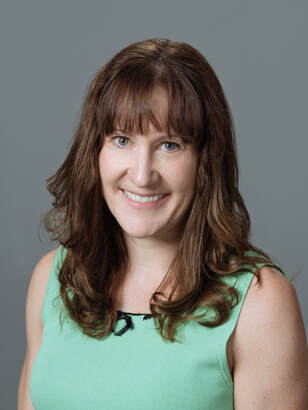
By Michelle Mudge-Riley, DO
If you missed The Physicians Helping Physicians Nonclinical NEXT conference, keep your eyes open for the next one. where you can join a community of physicians who openly share ideas and valuable networking opportunities…AND get CME.... Over a decade ago, I felt completely lost and unsure about my career path as a doctor. Although I got into med school on the first try and had succeeded in medical school - I actually LOVED medical school - along the way I had realized that traditional patient care wasn’t the right career path for me. I didn’t know what I was going to do or even what I wanted to do. I guess I should have seen some of the clues, but I didn’t. In medical school, SPAL (standardized performance assessment lab), where we simulate an H&P and go through the motions to practice a doctor-patient interaction, was my least favorite class. I didn’t know why at the time and I didn’t really think about it until rotations my third and fourth year, when I didn’t get excited enough about any direct patient care specialties to think about doing them for the next 40 years. While academically, things were great, I was horrified to realize I didn’t enjoy direct patient care. That scared me. It caused my classmates to question me. What was wrong with me? Turns out, there was nothing wrong with me, but it took me many years (and two more unnecessary degrees!) to realize it. Along the way I started writing about my struggle and when physicians of all specialities, out of residency and practicing for 3, 5, 10 even 20 years started reaching out to me to tell me THEY never liked patient care or were ready to do less of it, I realized I wasn’t a huge failure or a jerk. What helped me the most? Meeting and interacting with other physicians who had also decided to work in a nonclinical or nontraditional job. I realized I had options - lots of them! What are your options for a nonclinical career? You may have been considering a nonclinical career for years! In my experience coaching other doctors who want to transition to a nonclinical career, I’ve seen burnout can motivate a doctor to want to transition to another career. Boredom in a chosen specialty is another reason doctors may start looking at their options. For a certain subset of doctors, medicine may have been the wrong choice from the start. Through my journey and through helping other doctors, I learned that there are lots of nonclinical options for doctors. My first nonclinical job was working for a medical device company as a clinical liaison. I wanted to get into something that emphasized wellness and prevention and by luck, I stumbled on a job as director of wellness and medical management for a brokerage firm. That led to other consulting opportunities. Once I got into that first nonclinical job, my world started to open up as I learned about things I didn’t see or learn about in medical school. I also started to recognize opportunities to work in jobs where I could use my medical degree (and get paid as a doctor) within the business world. Pharmaceutical, public health and insurance companies are obvious places for most physicians who want a nonclinical job but there are also opportunities in finance, banking, writing, consulting, teaching, leadership, IT, marketing, public relations, entrepreneurship, nonprofit, government, international relations, nutrition, real estate, comedy, speaking...and more! Many of these are options for physicians who are not licensed or board certified. A nonclinical community Connecting with other physicians pursuing nonclinical paths really helped me map out what I wanted, identify opportunities, and understand that I wasn’t alone. Eager to help other physicians enjoy that same camaraderie, in 2008 I founded Physicians Helping Physicians, a community of like-minded physicians who coach and advise each other about nonclinical and nontraditional career opportunities. Every year we bring our community together for a conference to support each other. The conference is called Physicians Helping Physicians because that’s our mission. Some of the doctors in our community realized traditional patient care wasn’t for them early in their careers. Others came to the conclusion after practicing for five, 10 or even 20 years. Some suffered a health issue or needed more time at home with small children or aging parents. Others had a hard time getting out of bed each day because they didn’t look forward to their work anymore. Many of these doctors were clinically depressed. Some were suicidal. These doctors found hope in a nonclinical or nontraditional career.
If you’re considering a nonclinical career, I recommend that you start by taking the following three steps:
Create a resume. CVs are traditionally the norm in the scientific and medical fields, but resumes are becoming more common because they quickly describe a person’s experience and skills. Knowing how to translate a CV to a resume can help you communicate your value to employers. I didn’t receive training on creating a CV or resume in medical school, and my first resume was a mess of a document. If you want to create a resume, make sure you list your professional experience first, use bulletpoints to highlight how you bring value in your job (your results) and keep your resume to 1-2 pages. Be careful if you are considering hiring a professional resume writer. I’ve seen nice looking resumes that don’t help physicians because a non-physician resume writer may not understand how to effectively translate your clinical skills and experience into the right business terms or industry specific language. That will hurt your chances of getting into your ideal nonclinical job. Put together your one- to three-year personal development plan and an elevator pitch. To find the right job, knowing where you want to be a few years down the road is essential. Do you want to live and work at the beach? Why? Are you more interested in working internationally? How much money do you need? What’s your work-life balance goal? These are all important questions to know the answers to when you get to the point of evaluating job opportunities. Asking yourself questions like these will also help you create your 30-second elevator pitch to provide context about your skills and value to those you meet and interview with for jobs. Learn how to find jobs and effectively network. Knowing what your options are can help you narrow your focus and make your search more effective. You can learn more about options by reading books like Careers Beyond Clinical Medicine by Heidi Moawad or listening to Physicians In Transition podcasts. Finding specific jobs and getting interviews often involves the help of others. Networking is key to finding those people who can and are willing to help you. Networking through Linked In and scheduling phone calls with people works well. It takes purposeful action steps to figure out what you want to do and then do it. These steps will help you get started. The good news is that physicians who have transitioned to nonclinical careers are likely to remember their own transitions and be willing to help you. You have so much to offer so don’t lose confidence in yourself. You are still a doctor and you always will be. Every year, we bring our community of physicians in nonclinical careers together in a conference to help other doctors who are interested in learning more about or getting into a nonclinical or nonclinical career. The conference is called “What’s NEXT”, where NEXT stands for Nonclinical EXit Transition. Physicians who have successfully transitioned will share pros and cons of their new job and industry, answer questions about salary and lifestyle and help attendees with resources. If you are interested in learning more about a nonclinical career, please check out our conference. The conference is CME approved. You can see the schedule and learn more about future conferences here here. 
How to Network
by Robert Priddy Networking is part of finding a non clinical career.
Making connections can be easy, and people often want to be helpful. It’s catching up with long lost relatives, attending business and organizational parties, and connecting with friends and associates you usually just pass in hallways or in elevators.
People will honestly ask about you and what you’re doing. Starting your conversations with, “I’m looking to make this a great year of change,” will certainly elicit responses of tell me more, and what kind of change. Then, “Well, as you know I…. , and I’ve been involved in doing a lot of…., so now I’m working on…,” stands a great chance of getting the attention you want. So, don’t think for a minute you should be hanging up your Nonclinical Career Transition resume, stump speech and business cards when you are networking.
Some years ago I administered the Birkman Behavioral Assessment® to a group of high level members of a national physician executive organization. What differentiated them most from my control group was their elevated interest in “persuasive behavior.” Note, the Birkman assessment interprets “persuasiveness” with an orientation towards direct, persuasive communications.
While interests may or may not translate into actual behaviors, those results showed a heightened awareness in the need to convince others of their message. Outside of practice, in pursuit of a nonclinical career transition as well as in nonclinical work, physicians, like everyone else, need to be selling their ideas, their recommendations and their results constantly. While starting your sentence with, “As a physician,” may turn heads and gain initial attention, it won’t guarantee you’ll get your way. Persuasiveness is a skill, and a skill that can be learned. Learn to make a case for your point and presently it knowledgeably, logically and cogently, and you’ll find many more opportunities for success await you.
I recently wrote about your Stump Speech as the best way to make the best first impression. However, it is more than that. Actually, the basic content of what I’ll call your expanded Stump Speech can be primary material for almost every question you’ll be asked during networking and interviewing sessions. Let me explain.
First, the elements of the expanded Stump Speech:
The key to a good Stump Speech is to be brief and focused. It’s an introduction and it’s a way of setting conversational focus and boundaries. It is not your autobiography. With enough practice, it will become very easy to network with many people with a highly focused and managed content structure that clearly communicates important information about you while setting boundaries for the conversation.
If you'd like to learn more, don't hesitate to contact me for an initial Hallway Consult... Text or Call 720-339-3585 or email: [email protected].
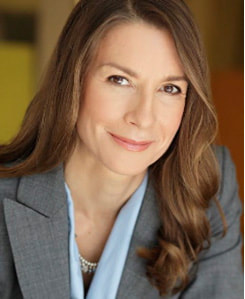
Heather Fork, MD, MCC is a master certified coach, blogger, and founder of The Doctor’s Crossing. Over the past 10 years she has helped hundreds of physicians find greater fulfillment both in medicine and in nonclinical careers. In addition to coaching, she also recruits for several nonclinical companies. Dr. Fork ran her own successful dermatology practice for 9 years in Austin, Texas.
In this interview, Dr. Fork shares her insights about the financial aspects of transitioning to a non-clinical job including the anticipated salary and how to approach a contract negotiation. Dr. Fork explains that many physicians who want to pursue non-clinical jobs are often hesitant due to financial concerns. She says that it is important for physicians to consider their long-term salary expectations and how much they would be willing to accept through a transitional phase.
Many of her clients carry a heavy weight of financial responsibility as the primary breadwinners of the family. Dr. Fork says that some doctors feel trapped, but she wants physicians to be aware that they have more career flexibility than they realize. She says that most doctors are surprised to learn that primary care physicians can expect to earn a starting income in a non-clinical field that ranges between $160,000 and $300,000.
She also explains that specialists— who have a depth of knowledge when it comes to high cost services, such as in orthopedic surgery, neurology, or cardiology—may be offered salaries above $300,000 by pharmaceutical and insurance industry employers. Dr. Fork encourages doctors to consider all aspects of an anticipated salary, and explains that stock options, bonuses, and yearly pay increases, as well as eventual promotions are routine in the non-clinical healthcare industry. She tells doctors to calculate hourly compensation in clinical work by including time spent charting and responding to off hours calls to be able to make accurate apples to apples comparisons between jobs.
She suggests that doctors to do their homework and learn the industry standards when negotiating a first contract. Dr. Fork explains that she had a client who had more experience than a typical entry-level physician. Because Dr. Fork had other clients who worked for the same company, she was familiar with compensation range and her client was able to negotiate an increase in compensation before starting the job.
She also recommends that physicians consider the long-term career potential of a new position. Sometimes a physician may accept a lower salary than they are used to in order to have better work-life balance. This is not uncommon, especially for the higher earning specialists, such as radiology and oncology. Taking a pay cut in the interim can also be a way to develop expertise in a new area with the goal of rising in the ranks and regaining the salary. Dr. Fork says that in her experience, it is realistic for some physicians to continue to see patients a few days a week while working part time in a non-clinical role. This is often specialty dependent. In fact, she says that this arrangement can help prevent burnout and may keep a physician’s skills sharp, helping build skills in both jobs.
With her extensive experience guiding physicians through career transitions, Dr. Fork also reminds doctors that it is important to formulate financial goals and become comfortable with financial issues and investments. She points out that it helps to understand your relationship with money and to try to develop a healthy attitude about money. For example, Dr. Fork says that some doctors have a hard time knowing when they have enough money to take the foot off the gas. In reality, they have piles of money but they still feel compelled to keep working hard. They’re often aware of this compulsion, but still have difficulty slowing down. It’s also common for some physicians to be so focused on providing for everyone else —helping extended family members, saving up for the kids college, donating to worthy causes, etc. that they neglect their own self-care and well-being. They feel guilty spending money on a gym membership or a massage.
When making a career change, she advises that physicians get a good handle on their financial goals, their habits around money, have a good understanding of their true income potential in a variety of jobs and careers. 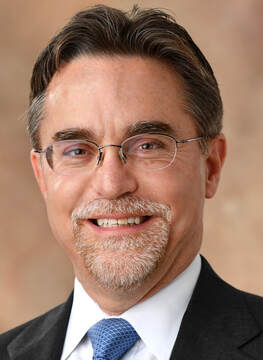
By John Jurica MD
Instructor of online course Securing a Career as a Medical Science Liaison Shortly after finishing my residency, I worked in a small family medicine practice. I held inpatient privileges, and spent many hours in the local community hospital caring for my patients. As a result, I attended many medical staff committee meetings. I balanced work in the office, nursing homes, and the hospital for a long time. I enjoyed working in the hospital environment. Ten years later, I was hired as Vice President for Medical Affairs, the hospital’s first ever physician executive. I was later promoted to Senior Vice President / Chief Medical Officer (CMO), and I stopped all direct patient care. In the next few paragraphs, I’m going to explain how to make the transition from practicing clinician to hospital executive, based on my experiences and conversations with CMO colleagues. Characteristics of an Emerging Hospital CMO Physicians best suited to this career generally have the following characteristics or backgrounds:
About the Author: John V. Jurica, MD, MPH, is a certified physician executive, host of the Physician Nonclinical Careers Podcast and “admin” for the Physician Nonclinical Career Hunters Facebook Group. You can access a free guide to 3 Top Hospital Management Jobs, minicourses, and articles by going to vitalpe.net/nonclinicaldoctors.

By Nana Korsah MD
Have you ever felt overwhelmed with the transition from one job to another? The pressures that come with this life change is somewhat unavoidable, but there is something that is sure to ease the process, and that is tail insurance coverage. So, what is tail insurance? According to www.studentdoctor.net, “tail coverage is an extended reporting period endorsement, offered by a physician's current malpractice insurance carrier, which allows an insured physician the option to extend coverage after the cancellation or termination of a claims-made policy.” In this guide, I will get into how you can set up tail coverage with ease, if needed, and how to discover different types of malpractice insurance. This is information that I wish my coaching clients knew sooner, but my hope is that this will prevent the stress of tail malpractice insurance coverage.
In conclusion, when it comes to malpractice insurance, pick a job that has an occurrence-based policy. If you should decide to go for a claims-made policy, make sure you have established one of the following: your employer will cover tail insurance when you leave, you have a tail coverage fund, or your new employer will pay for your tail policy. I encourage you to use these simple, practical solutions at your disposal because no one should be imprisoned at a job because of tail insurance.
About the author: Nana Korsah, MD is a former Nephrologist turned locum Hospitalist. Board certified in Internal Medicine. She has side gigs as a Telemedicine Physician, Neora skincare/wellness company brand partner, a certified life, and financial coach for physicians who want to pay off debt and live wealthy lives quicker. She helps physicians who want to enjoy the lives they sacrificed so much to create, but they don't know where to start. She helps them build wealth and say yes to the lives they want using the magic of personal finance and multiple streams of income. You can contact Nana Korsah, MD through her website www.mdworklifebalance.com or via email at [email protected] 
An interview with Physician on FIRE's Leif Dahleen, MD
Leif Dahleen, MD is a part-time anesthesiologist on the brink of early retirement from medicine at the age of 43. When he realized that work had become optional in his life, he started a website, Physician on FIRE (Financial Independence Retire Early) to help educate and enlighten others on personal finance topics. He can be found via his website, Twitter, Facebook, and Instagram. Do you think doctors approach money differently than other groups? Why? Well, money is money and the money we doctors earn is no different than the money that everyone else gets. Nevertheless, there are some unique aspects to our career trajectories that necessitate an approach to money that addresses them. We get a late start, are often saddled with large student loan debt, and are taught next to nothing about money management throughout our education and training.
Do you think physicians have any financial advantages?
Physicians earn a lot of money. Any published list of the top-earning professions will be dominated by medical specialties. The high salaries are an advantage in that they allow us to potentially save a lot. However, it's not unusual for a doctor and his family to spend the vast majority of that income. Gratification has been delayed for so long that it's hard not to splurge once you finally see a real payday. We also benefit from relatively good job security. I actually lost my first "permanent" job as an anesthesiologist when a hospital was going bankrupt, but that's relatively rare and I had plenty of opportunities at that time to work elsewhere. Our skills are portable, too. Locum tenens work can be a great way to supplement our incomes without having to learn a "side hustle."
Do you think physicians have any financial disadvantages?
They start earning late, the massive debts, and the lack of financial literacy. That last piece makes us sheep facing a financial services industry with far too many wolves. Physicians also too often mistakenly assume that because they've been successful in their careers, they will also be successful in other endeavors. Unfortunately, understanding the complexities of the nephron does not translate well to the business world. I've known physicians to go bankrupt after putting too many eggs in one faulty basket with business and real estate ventures. How would you recommend that a physician get started learning about managing money and investments? Start with a good book or two. My first money book was The Only Investment Guide You'll Ever Need, which I read as a medical student. I read The Millionaire Next Door shortly after finishing residency. Since then, a few good books have been written by physicians, including books from The White Coat Investor and The Physician Philosopher. With a good foundation from a well-organized book, delve into topics of interest via blogs and podcasts.
What blogs, websites, books or podcasts do you recommend?
I've written a pretty thorough guide to DIY investing that's chock full of resources. I've also got a two-part series on Investing Basics for busy professionals. But my site is just one little sliver in the personal finance world, and the number of physicians participating has increased more than tenfold since I started in 2016. I'm a part of the White Coat Investor Network which also includes WCI, Passive Income MD, and The Physician Philosopher. All are excellent. Helpful podcasts include Dr. Nii Darko's Docs Outside the Box, Dr. David Draghinas' Doctors Unbound, and Dr. Carrie Reynolds' Hippocratic Hustle. These are insightful podcasts with guests doing unusual and extraordinary within and in addition to medicine. There are dozens of other great resources out there, and I can't possibly mention them all. I do my best to keep a blogroll that's reasonably up-to-date, but the landscape changes rapidly in the online world.
Do you think there is a magic number in terms of how many hours/week a physician should spend on managing money?
The number isn't magic, but for the vast majority of physicians, that number should be less than one. I think people ought to spend a few hours a week learning about personal finance, but money management is generally best when it's automated and not tinkered with much at all. Invest in a three fund portfolio or variant and earn the market returns. Most who try to do better fail, including very well-paid investment managers with vast resources in terms of data, connections, and quantitative analysis. Simple and effective money management shouldn't take much more than an hour a month once you've set things up the way you want them.
Always Act Like You've Been There Before
by Robert Priddy I try to refrain from sports analogies, but this is one of my favorites. I'm from Ohio, so, yes, I'm a buckeye at heart, and one from the Woody Hayes era of The Ohio State University football. So, the legend goes, a young Ohio State player scored his first touchdown for the Scarlet and Gray. He then performed some celebration in the end-zone before returning to the sidelines, whereupon Coach Hayes reportedly grabbed him by the front of the jersey and pulling him in close growled, "Son, when you play for THE Ohio State University, you act like you've been there before."
An interview with physician coach Karen Leitner MD.
How did you get into coaching?
There was a point before I started to transition away from clinical medicine where I was burned out and lost, trying to juggle a busy practice and a growing family. I genuinely thought the problem was not having enough time. I felt pulled in a million directions and therefore inadequate at doctoring and mom-ing (despite outside evidence to the contrary). I would look around at my colleagues who seemed like they were all managing OK and I wondered what was wrong with me that it felt so overwhelming and out of control. I felt like I was letting everyone down and there was a lot of shame. It was only after I completely changed everything (new job so I could work from home, set my own schedule, be around my kids, make more money) and still felt unfulfilled that I realized the problem was not the external factors. A big part of my dissatisfaction was my mindset and the unrealistic expectations I was setting for myself. If I didn’t change that, it didn’t matter what I did; I still wound up feeling like I was not enough. So (to make a long story long!) through a life coaching podcast, I was exposed to the thought model that I now use with my coaching clients, and it was like a light went on for me. I realized a lot of my thinking was hurting me. I did a lot of work on myself and my mindset with the tools of coaching and being coached, and it made all the difference! Now I can handle whatever life throws at me. I am more balanced, independent, self assured of my value both at work and at home and I’m excited to live my life on my terms. Do you have a niche in coaching? I exclusively coach women physicians. It has been a fascinating journey and I am compelled to help other women physicians learn the skills of coaching, earlier, before they reach burnout like I did. I love to coach them to help increase their confidence and fulfillment in their careers and relationships.
What surprises have you have about your client's professional lives and needs since you started?
It has surprised me how much fun we have in coaching and how many friends I have developed in my clients and the coaching community. Group coaching has been deeply meaningful to me, both as a participant and also in the group coaching programs that I run. There is such commonality among women physicians and what we struggle with. What I mean is that we are a brilliant, hardworking, dedicated, capable, powerful, compassionate group. Yet on the whole we lack self compassion, we put others’ needs ahead of our own, and many of us feel inadequate much of the time since we are trained in a system that relies on external validation. We don’t recognize our intrinsic worth and when things go wrong with patients or our families, we are extremely harsh and unforgiving with ourselves. We also negotiate for ourselves on the whole quite badly. I love helping physician women grow into the best version of themselves and realize how much value they contribute and how worthy they are of their own love and compassion. What one piece of advice do you have for physicians who are not satisfied with their careers? Before you switch jobs, clean up your thinking. A lot of us think if we can just switch jobs, partners, institutions, % FTE, etc we will be happier and more fulfilled. If we do that without looking at the thoughts that are contributing to our dissatisfaction, we risk recreating the same situation wherever we wind up. If you are a people pleaser, hate saying no and take on too much work without setting boundaries in one job, chances are you will do the same in your next job if you don't work to change. Through coaching I help clients take radical responsibility for their lives. As long as it is up to your boss or partner or kids to change in order for you to feel happy and fulfilled, you don’t have much control. Recognizing that how you think about EVERYTHING Is what really creates your life is a huge game changer.
How can a doctor know when it's time to call a coach?
I love this question! Everyone can benefit from coaching. A common misconception is that coaching is only if you are having trouble or are unhappy. I am very happy and successful and I still commit to investing in coaching for myself because it helps me set new goals and pushes me to attain them, as well as work on the parts of me that I’d like to improve. Think about athletes: Poor performing athletes need coaches. Michael Jordan needed a coach. Being a human is both wonderful and also incredibly challenging, especially as a physician and as a woman. The culture of medicine does not focus on taking care of us and we in turn do not do a very job of caring for ourselves. We pay a price for that, just look at the rates of mental health problems, addiction and suicide in medicine. We need help and there is a stigma around pursuing it. Coaching should be part of medical education so we learn the tools of resilience and self preservation. I could go on and on. What is your favorite thing about coaching? My clients! Meeting them, getting to know them, seeing their strengths and watching them transform and grow and reach their goals. They are incredible, each and every one. You still maintain work with Teladoc- what are the benefits of doing that? I enjoy it because of the members I am able to help. Currently I work exclusively with Transgender folks in a longitudinal virtual care program. They are an incredible and gifted community of folks who have unique challenges in navigating the healthcare system. I love getting to know them and helping to make it easier for them. These relationships enrich my life. You can contact Dr. Leitner, karenleitnermd coaching at www.karenleitnermd.com 
By Jessica Lubahn, MD
When I went to medical school, I never imagined that I would become a Urologist, much less start an underwear company. As rigorous as medical training is, there is something very comfortable about having a step-wise path that leads to a mostly stable endpoint. Entrepreneurship has been anything but comfortable, with no discernible blueprint to follow. The merging of these dichotomies started soon after I began my first private practice job after residency. In my line of work, I directly bear witness to the impact incontinence has on my patients, as well as my close friends and family members. Incontinence can drive isolation and depression. I treat women and men with medications, nerve stimulators, botox, and even surgery. The distress may be great even when the leakage is “mild” from a medical standpoint due to the shame experienced by the patient. The idea for leakproof underwear developed while I was on maternity leave, and I thought about extrapolating cloth diapering technology into stylish, adult underwear.
5 Common characteristics of an entrepreneur
Navigating the ins and outs of the fashion industry has been --- interesting. For a person with a scientific background, negotiating the lack of standardization at every level was eye opening. For instance, there is no encyclopedia of general fabric properties. Juxtaposed to the urgency of medicine, steps in business seemed to move at a snail’s pace. To enjoy this environment, certain characteristics apply:
Steps to starting a clothing brand
I wish I knew what I know now, and I think that I could have created this brand through a much more efficient route. However, mistakes helped me really learn about the production process.
In the end, this company has been quite complementary to my medical practice. It has brought me more joy to my own practice, as it has made me a better listener to the pain points of my patients. It has challenged me, not only from a treatment standpoint, but also to think of more inventive ways to look at their problems. About the Author: Dr. Jessica Lubahn, MD is a medical doctor and urologist. She is a health writer and consultant and is the creator of ONDRwear (ondrwear.com) which are plant-based leak proof underwear for preventing leaks. Facebook: https://www.facebook.com/ondrwear/ Instagram: ONDRwear (@ondrwear) • Instagram photos and videos 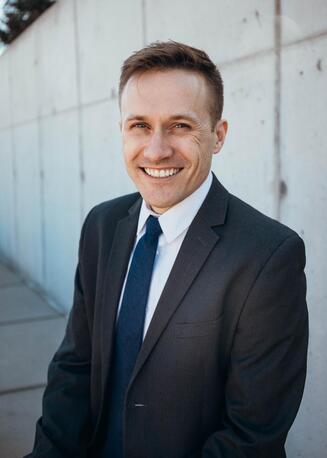 I recently had the opportunity to talk with Eric Bork of Pattern Insurance. Pattern is an independent insurance brokerage that caters specifically to physicians. Eric shared some great insights about physician disability and life insurance that every doctor needs to consider when selecting an insurance policy—and when reviewing already existing policies to see if any updates are needed. When should physicians start thinking about disability insurance? For disability insurance, the answer is yesterday! Nobody can predict what illness or accidents you may face in your life when they might occur. You will never be younger and healthier than you are now, so that is the ideal time to purchase disability insurance. This will allow you to get coverage with fewer health restrictions, if any, and the cheapest rates possible. Protecting your future income after all those years in training is crucial for any doctor at any point in their career. What about life insurance? What about doctors who have never been married and don't have children? Life insurance is a little different and depends on each individual's circumstances. If you have any dependents or are married, you need life insurance right away. If you are single with no dependents, it can still be a good idea to get life insurance as it is cheaper while you are young. However, your needs should be discussed with a financial professional before deciding what is best for your situation. Overall, term life insurance is very cheap and can fit in every doctor’s budget. Do the costs and benefits differ by specialty? What if a doctor has a completely non-clinical role like chart review? The cost of disability insurance does vary by specialty, along with many other factors including your state, income, and age. Certain specialties are deemed as more risky for potential disability, so they are all separated in what are known as occupation classes by the insurance company. Insurance companies also look specifically at your duties when applying for coverage to assign the right occupation class. However, the great thing about getting a true own-occupation policy, is that if your duties change over the course of your career, you would be covered according to your specific duties prior to the time of disability. This can work to your advantage if you get a disability insurance policy in training while less specialized with a cheaper occupation class. Even as you add specialization or additional duties over your career, your policy will now cover you even at the cheaper rate. How about doctors who have an inconsistent salary and can't even estimate their salary in advance? Such as doing locums clinical work or expert witness, which are both sporadic projects? This can vary a little with each insurance company. Insurance companies will typically look at some income documentation to determine how much coverage you are eligible for. This could include paystubs, tax returns or even employment contracts. If you have inconsistent pay, the insurance company will most likely look back at your entire prior year taxable income to come up with an appropriate benefit amount. Do physician moms who work part time or step away from work for a while still need to get life and disability insurance? Life insurance is absolutely a must if you have young children. Anyone who makes an income that is relied upon by themselves or other family members should get disability insurance. In other words, if you or anyone else would have financial difficulty if you became disabled and couldn't earn your income, you should protect that income with disability insurance. How does specialty specific insurance come into play when a doctor becomes disabled and could do something that isn't physically demanding—like telemedicine? What if there are jobs but the doctor can't seem to find a job or the new job pays less than the in-person job? Can he or she collect some disability payment long term or temporarily? This is the exact reason why you want to get a specialty specific or true own-occupation disability insurance policy. If you cannot perform the specific duties of your specialty, you can collect a disability payment, even if you can work in another job. This would include telemedicine, teaching, etc. You could get the full benefit from your disability policy as well as the entire income from your new job. The other great thing about a true own-occupation policy is that if you can’t find a job or choose not to work in a different job, you do not have to. You can still collect a full benefit as long as you cannot perform the material and substantial duties of your specialty at the time of disability. How does divorce affect rates? Should doctors adjust the policy when this happens? Divorce is not one of the factors that affects the rates of disability insurance. However, it can affect how much coverage you need. For instance, if you are married and living in a two income family where your income makes up 50% or less of the total family income, you could opt for less coverage than if you were divorced and single and solely reliant upon your own income and without the support of your spouse's income. How can you keep an open mind when assessing different policies? The first thing to do is to educate yourself and determine what you absolutely must have in a policy and what you absolutely do not want in a policy. Once you know these things, you can begin to narrow down the options. One thing to avoid is talking to any insurance agent who represents one insurance company. Even if they say they are unbiased but are employed by a single insurance company, they will have a conflict of interest and most likely be incentivized to sell that company's policy. Find an independent broker who works with all of the major companies and who has a long track-record of working with doctors and being trusted by doctors. Between educating yourself and finding a trusted, unbiased broker to work with, you will be able to discern what is really best for you and avoid getting "sold" something that's not in your best interest. If you are ready to talk to an unbiased, independent broker who specializes in own-occupation disability insurance, visit Pattern to learn more.
If you’d like to learn more, don’t hesitate to contact me for an initial Hallway Consult... Call or Text 720-339-3585 or email [email protected].
More advice by Robert Priddy-The Resume Recruiters and HR People Hate, Physician Career Change, and Self Protection Is Self Defeating  By Naval Asija MD A computer is a machine that works very fast and makes things easy. How fast, depends mostly on the hardware, and how easy mostly depends on the software. Software or applications are fancy terms for the computer program. A computer program determines how well the computer is told to do things. “Machines are excellent workers, but poor leaders”. It can’t be truer than the case of computer programs. If you don’t tell the computer to do its task in a proper manner, it will never do it properly. Computer programs are based on stacks of information known as databases. And then, the written instructions tell the computer whether to run or not run elements of the database. This process of giving instructions to the computer is based on logic statements using binary results in the form of TRUE or FALSE and the use of “Operators” like IF and THEN, AND-OR, GREATER THAN-LESS THAN. The actual instructions to the computer are however provided through use of special programming languages like HTML, C++, and Python which are known by software engineers. They convert the above logic statements into “Code” and this process is called coding.
What If The Physician Can’t Alter The Database? What Skills Does The Physician Require?
The physician can intervene at the workflow part of the application while also forming the logic rules for running the parts of database. Programming rules that facilitate integration with the clinician’s workflow and enable quality information entry and increase usability of the application should be the physician’s top priority targets of intervention. The physician could use intelligence and clinical experience to make the user experience seamless, smooth and enjoyable. Some of the examples in this regard could be:
About the author: Dr. Naval Asija is from India and has a postgraduate qualification in health administration. He has worked for four years in Synodex, Innodata as a Med-Tech Physician. He currently writes about various health issues. You may also like reading his blog post A Typical Workday Of The Physician In A Healthcare IT Company that was posted on his personal blog. |
Career Advice From the Experts and Leaders in Healthcare Careers
Contents
|
Information
|
Stay Connected
|

